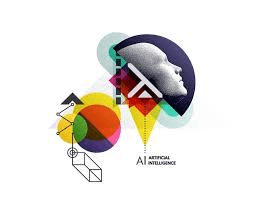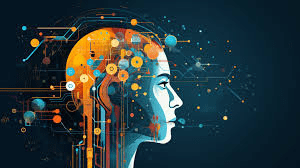"As AI continues to revolutionize the IT industry, concerns about the future of programming jobs abound. But are these fears justified?"
The rise of Artificial Intelligence (AI) has sparked a debate about its potential impact on the workforce, particularly in the field of programming. There are concerns that AI could eventually replace programmers entirely, leading to a decline in job opportunities. However, a closer examination reveals a more nuanced and optimistic outlook. This blog post explores the future of programming jobs in the context of AI and argues that rather than a vertical decline, we are more likely to see horizontal growth driven by the widespread adoption of AI and IT transformation across industries.
One of the key points to consider is that while AI has the potential to automate certain programming tasks, it is unlikely to replace the need for human programmers entirely. AI is currently most effective at automating repetitive and routine tasks, such as code generation and bug fixing. However, programming also requires creativity, problem-solving skills, and domain knowledge, which are areas where humans still excel and where AI struggles to replicate human ingenuity.
Instead of displacing programmers, AI is more likely to augment their capabilities and change the nature of their work. For example, AI can assist programmers by automating mundane tasks, allowing them to focus on more complex and creative aspects of programming. This can lead to increased productivity and efficiency in software development.
Furthermore, the widespread adoption of AI across industries is expected to create new opportunities for programmers. As more businesses integrate AI into their operations, there will be a growing demand for programmers with expertise in AI and machine learning. This presents an opportunity for programmers to upskill and specialize in these areas, opening up new career paths and opportunities for growth.
Overall, while AI is poised to change the landscape of programming, it is unlikely to lead to a decline in job opportunities. Instead, we are likely to see a shift towards more specialized and creative roles, driven by the transformative impact of AI on industries. By embracing AI and upskilling in relevant areas, programmers can position themselves to thrive in this evolving landscape.
AI: Augmentation, Not Annihilation
Artificial Intelligence (AI) is set to become a powerful tool within the programmer's arsenal, rather than a threat of job displacement. It will play a crucial role in automating repetitive coding tasks, thereby freeing up programmers to focus on more strategic endeavors. These include higher-level problem-solving, innovation, and the design of user-friendly interfaces for "citizen developers" – individuals with limited coding experience who can leverage these tools to automate tasks within their specific domains.
One of the key ways AI will impact programming is through the automation of repetitive tasks. AI-powered tools can assist programmers in writing boilerplate code, debugging, and optimizing performance. This automation can significantly increase productivity, allowing programmers to tackle more complex and challenging problems.
Moreover, AI can enhance the role of programmers as innovators. By automating routine tasks, programmers can devote more time and energy to exploring new ideas, experimenting with new technologies, and developing innovative solutions. This can lead to the creation of more advanced and sophisticated software products that push the boundaries of what is possible.
Another area where AI will have a significant impact is in the design of user-friendly interfaces for "citizen developers." These are individuals who may not have extensive coding experience but can use AI-powered tools to automate tasks within their specific domains. For example, AI can be used to create intuitive drag-and-drop interfaces that allow users to build simple applications without writing a single line of code. This democratization of programming can empower individuals across various industries to create their own custom solutions, further driving innovation and creativity.
In conclusion, AI is set to revolutionize the role of programmers, making them more efficient, innovative, and impactful. Rather than displacing jobs, AI will enhance the capabilities of programmers, enabling them to tackle more complex challenges and drive innovation in software development. By embracing AI as a powerful tool in their arsenal, programmers can unlock new possibilities and shape the future of programming.
Beyond Automation: The Horizontal Expansion of IT Jobs
The narrative of AI and automation often focuses on job displacement, but the real story lies in the horizontal growth of IT professions. As businesses across all sectors embrace digital transformation and integrate AI-powered solutions, the demand for programmers with specialized skill sets will surge. Here's why:
Customization and Integration Imperative: Off-the-shelf AI solutions rarely offer a perfect fit. Programmers with expertise in application programming interfaces (APIs) and system integration will be crucial for customizing and integrating AI tools with existing systems, ensuring seamless operation and maximizing value extraction.
The Power of Data: Wrangling and Management: The true magic of AI lies in the data it consumes. Programmers with expertise in data engineering, data analysis, and data pipelines will be central to collecting, cleaning, and preparing the data that fuels AI systems.
Human-Machine Collaboration: A Symphony of Expertise: The future belongs to intelligent systems that collaborate effectively with humans. Programmers will be needed to design user interfaces, develop training programs for AI models, and ensure effective human-machine interaction.
A Landscape of Emerging Technologies: As AI continues to evolve, new applications and functionalities will emerge, demanding programmers with expertise in cutting-edge areas like natural language processing, computer vision, and robotics.
The Evolving Skillset: The Programmer of Tomorrow
While the core principles of programming remain valuable, the skillset of tomorrow's programmer will likely encompass:
Domain Expertise: An in-depth understanding of the specific industry or domain where the AI solution will be applied will be a major advantage.
The Power of Soft Skills: Communication, collaboration, and problem-solving skills will be paramount for navigating complex projects and interacting with diverse stakeholders.
Agility in the Face of Change: The technological landscape is constantly evolving. The ability to learn and adapt to new technologies will be a key differentiator for programmers of the future.
In conclusion, the rise of AI and automation is not a threat to programming jobs, but rather an opportunity for horizontal growth and specialization. Programmers who embrace this change and develop the necessary skill sets will be well-positioned to thrive in this exciting new era of IT.
The Future of Programming: Collaboration, Not Competition
The future of programming is not a zero-sum game pitting humans against machines. Instead, it's about humans and machines working together to achieve remarkable feats. While AI will undoubtedly transform the programming landscape, it won't replace programmers. Instead, it will usher in a new era of horizontal growth, demanding a new breed of programmers – adaptable, collaborative, and equipped with a unique blend of technical and domain expertise. Those who embrace this transformation and reimagine the possibilities of what programmers can achieve will be well-positioned for success in this exciting new era.
The collaboration between humans and machines will lead to more efficient and innovative solutions. AI can automate repetitive tasks, allowing programmers to focus on more strategic and creative aspects of their work. This partnership will also enable programmers to leverage AI's capabilities to develop more sophisticated and intelligent applications that can revolutionize industries.
Furthermore, AI will create new opportunities for programmers to specialize in areas such as AI ethics, explainable AI, and AI safety. These specialized roles will be crucial in ensuring that AI is developed and deployed responsibly and ethically.
Adaptability will be key in this new era of programming. Programmers will need to constantly update their skills and knowledge to keep pace with the rapid advancements in AI and technology. Collaboration will also be essential, as programmers will need to work closely with AI systems and other professionals to develop holistic solutions to complex problems.
In conclusion, the future of programming is about humans and machines working together synergistically. AI will transform the programming landscape, but it won't replace programmers. Instead, it will create new opportunities for collaboration and innovation, demanding a new set of skills and expertise from programmers. Those who embrace this transformation and cultivate a mindset of continuous learning and collaboration will thrive in this exciting new era of programming.


